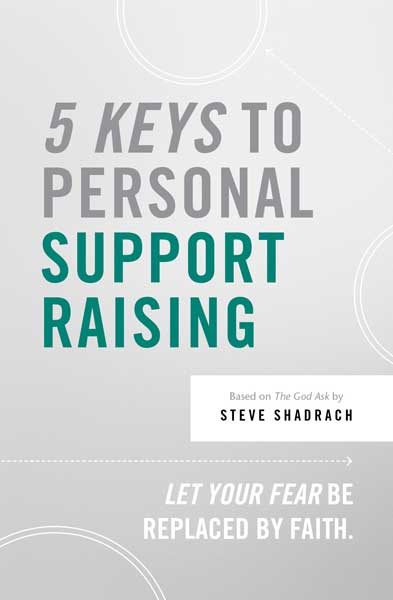
“Relationships, Resources and Rhythms”. I’ve taught this so very often: 3 R’s that help categorize and quantify losses that accompany every significant transition. They are areas that must be noticed, grieved and rebuilt in seasons of change.
Relationships—Christianity is a “team sport,” so a good measure of thriving has its roots in knowing who “your people” are. This is by design. Part of God’s image is “us-ness” (Trinity) and it has been imprinted onto our souls. Most of the “you” imperatives in scripture are plural. Transition disrupts and disconnects us from those who have been our people.
Resources—The first year of living anywhere always involves a steep learning curve, especially when you are overseas. It requires so much emotional bandwidth to figure out how to “do life.” From grocery shopping and vehicle registration to directions and leisure activities, everything is a steep learning curve. It is often exhausting, but slowly, the requirements of daily life take less energy as we settle.
Rhythms-These are the bones onto which we hang the flesh of our comings and goings. They are predictable, comforting, and secure.
Now, here I am, just off a 6-week MPD (ministry partner development) trip and feeling exhausted, fearful, and lonely. Some of this is just a part of this season of life. I am used to living in a relationally rich community and the nature of a one-year home assignment makes local relationships hard and virtual relationships difficult to maintain. I really enjoy reconnecting with financial partners who I have not seen in many years, but there is often a reporting/transactional nature to the relating that tends to drain me rather than fill my tank. Also, living out of a suitcase and bouncing state to state, church to church, guest bed to guest bed…it’s just tough. Lastly, I don’t prioritize my rhythms very well when I am on the road. Too often, I let opportunities and invitations control my schedule and there is always room to squeeze in one more appointment. All that said, I am vulnerable. The vulnerability is part and parcel of every transition because my relationships, resources, and rhythms have been disrupted.
I have a fairly high capacity, but my vulnerability expresses itself in certain ways that I noticed popping up last week. I began to have trouble going to sleep and started waking too early with an anxious feeling about the day. I became short with my wife and lacked patience. I felt like a man juggling too many balls and was very aware of those that I was dropping or on the verge of dropping. So, as I pen these few words about the value of Sabbath rhythms during MPD, many of my thoughts flow from failure rather than mastery!
Let’s Get Theological:
- God has made us to function best with a work/rest rhythm. From the earliest pages of Genesis, we see God modeling Sabbath rhythms as he rests on the 7th day (not because he was tired) and in daily walking in the cool of the garden with Adam and Eve. Both of these rhythms suggest that God is not in a hurry, but values creating sacred space to soak in the wonder of creation and the richness of relationship.
- “Being still” as an act of faith is tough for “professional” Christians. These thoughts are rooted in Psalm 46:10, which I call a “commandvitation.” This is an invitation to faith and intimacy with the Father…but He is clearly commanding us to do it!
- We are doers by nature. We have gone to the mission field and want to affect change.
- We are passionate. Our hearts beat for the lost and for the expansion of God’s kingdom.
- Many of us struggle with a bit of a savior complex. Sometimes we own too much of the kingdom work and can find ourselves “striving” rather than “resting.” Psalm 46:10 points to this as a faith problem. We are to cease striving because God is God (and we are not). He will be—without question—exalted in the nations (and it’s His job, not ours). So, choosing Sabbath rhythms is a movement of faith that our God is who He says he is. He wants us to stop and soak in His good and gracious work.
- From my experience working in missions for thirty years, we can be a little codependent. Please see my finger pointed at myself first. My hard work for the kingdom is often fueled by an unhealthy desire to stay in God’s “starting lineup” and is informed by the confusing reality that my service to the kingdom is also related to my receiving a paycheck.
- Close the gates: When Nehemiah was rebuilding the wall around Jerusalem, he ordered that the gates be closed on the Sabbath (Neh. 13:19). This effectively stopped all commerce as well as the normal comings and goings from the city once a week. I would suggest that his priority of closing could be used as a metaphor for our closing off space for rest, filling, and worship.
Getting Practical:
- 30,000 ft perspective: Set up a plan for rest and refreshment that honors the length of your HMA, your personality (and your spouse’s), and God’s clear desire for Sabbath rhythms. Pull out the calendar. Figure out your daily, weekly, and quarterly needs in regard to closing the gates. Schedule around them.
- Pray Psalm 139:23-24 (Search my heart O God) over your HMA. Transition disrupts our relationships, resources, and rhythms. In doing this, it also reveals idols. You will find yourself clinging to things other than Jesus for security. This is a great opportunity to see and to repent of these idols, which are often “good” things attached to your ministry. Don’t miss the chance for this deep soul work.
- Awareness-Conversation-Communion: Keep an awareness journal that you read during your Sabbath. This is my first time living in the US since 1996. There are so many things to notice. I want to be aware of my longings, my loneliness, my compulsions, my fears, and my hopes. All of these are the basis for the richest conversations with the Father. Notice these things. Awareness will lead to Conversation (over deep soul things) and result in Communion (enjoying the fruit of the communion that is always ours in Christ). You must “close the gates” to engage your soul in this way.
- Remount the gate: This is where I am. In the last week, my soul has been tossed all over the place and unsettled. As I review my MPD trip, I am aware that I have not tended to my Sabbath rhythms well. I’m thankful for a soul that is not settled when I am not resting in Christ (Augustine). He is my anchor. So, I will repent, remount the gates (likely not for the last time), close them, and receive His rest.

